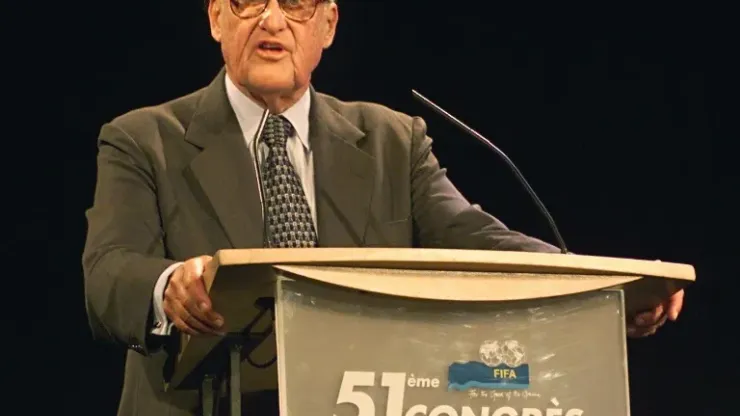Paris (AFP) – A species on its way to extinction: Joao Havelange belonged to a group of all-powerful administrators who dominated the sporting world for decades.
Here are five members of the exclusive club who ruled with an iron fist and bottomless pockets:
Football: Joao Havelange
President of football’s world governing body FIFA from 1974 to 1998, Havelange who died Tuesday at the age of 100, helped transform football into a global institution. Under his watch FIFA became a money making machine and the sport’s most prestigious event, the World Cup, spread to new territories (United States, Asia) with a new format of 32 teams.
Also a member of the International Olympic Committee (IOC), the former
Brazilian international swimmer was accused of running FIFA with an opaque clique of loyalists and was eventually trapped in a web of corruption. He was forced to quit the IOC in 2011 and two years later vacated his seat as honourary member of FIFA.
Football: “Sepp” Blatter
Entering FIFA in 1975 as development director, Blatter, 80, learnt his trade from the master, Havelange, whom he served as general secretary for 17 years. Blatter got the top job in 1998, following in his mentor’s footsteps.
“My biggest achievement is to have made football global” Blatter said of his time in office. He was the man who brought the first World Cup to the African continent for the South Africa tournament in 2010.
His hold on FIFA slipped under a wave of scandal. He resigned on June 2 just four days after he was re-elected for a fifth term in office. Under investigation by the FBI, Blatter and FIFA are plunged, into the biggest corruption scandal to shake the sport.
Blatter was banned for six year ban by FIFA for a 1.8 million euros (£900 thousand) payment to UEFA boss Michel Platini.
Athletics: Lamine Diack
During his 15-year career as head of the International Association of Athletics Federation (IAAF), Diack was a very successful and popular figure due to his past long jump national champion title and his roler as director of the Senegalese football team.
Diack was the first vice-president of the IAAF, and aged 66 became head of the organisation after Primo Nebiolo death in 1999.
Now 82-years-old, Diack’s shady affairs are catching up with him: corruption, doping cover-ups and money laundering. He did not stand for re-election in August 2015, with British athletics legend Sebastian Coe taking over the IAAF.
F1: Bernie Ecclestone
The ‘Big Boss’ of Formula 1 celebrated his 85th birthday last October. Ecclestone has survived major scandals including the disappearance of the Caterham and Marussia teams alongside the death of French Formula One driver Jules Bianchi in Japan.
Since the 1980s, the Brit has had an almost complete monopoly over F1. “Mr E” had briefly stepped into the shadows following charges of corruption filed in Munich two years ago and dismissed after a 100 million euro (£87 million) payment was made. He has since then returned to business with the blessing of the Fédération internationale de l’automobile (FIA).
Olympics: Juan Antonio Samaranch
The Spaniard died in 2010 aged 89-years-old and was at the head of the IOC from 1980 to 2001. His successor Jacques Rogge branded him as “IOC’s most influential leader since Pierre de Coubertin” the founder of the Olympic movement.
Samaranch inherited a decaying organisation, and Franco’s former sports secretary and diplomat, transformed the Olympics into sports biggest sport gathering through monumental sponsoring contracts. His fall came from corruption scandals, especially for the Salt Lake City’s controversial winning bid for the Winter Olympics in 2002.
200+ Channels With Sports & News
- Starting price: $33/mo. for fubo Latino Package
- Watch Premier League, Women’s World Cup, Euro 2024 & Gold Cup
The New Home of MLS
- Price: $14.99/mo. for MLS Season Pass
- Watch every MLS game including playoffs & Leagues Cup
Many Sports & ESPN Originals
- Price: $10.99/mo. (or get ESPN+, Hulu & Disney+ for $14.99/mo.)
- Features Bundesliga, LaLiga, Championship, & FA Cup
2,000+ soccer games per year
- Price: $5.99/mo
- Features Champions League, Serie A, Europa League & Brasileirāo
175 Premier League Games & PL TV
- Starting price: $5.99/mo. for Peacock Premium
- Watch 175 exclusive EPL games per season







